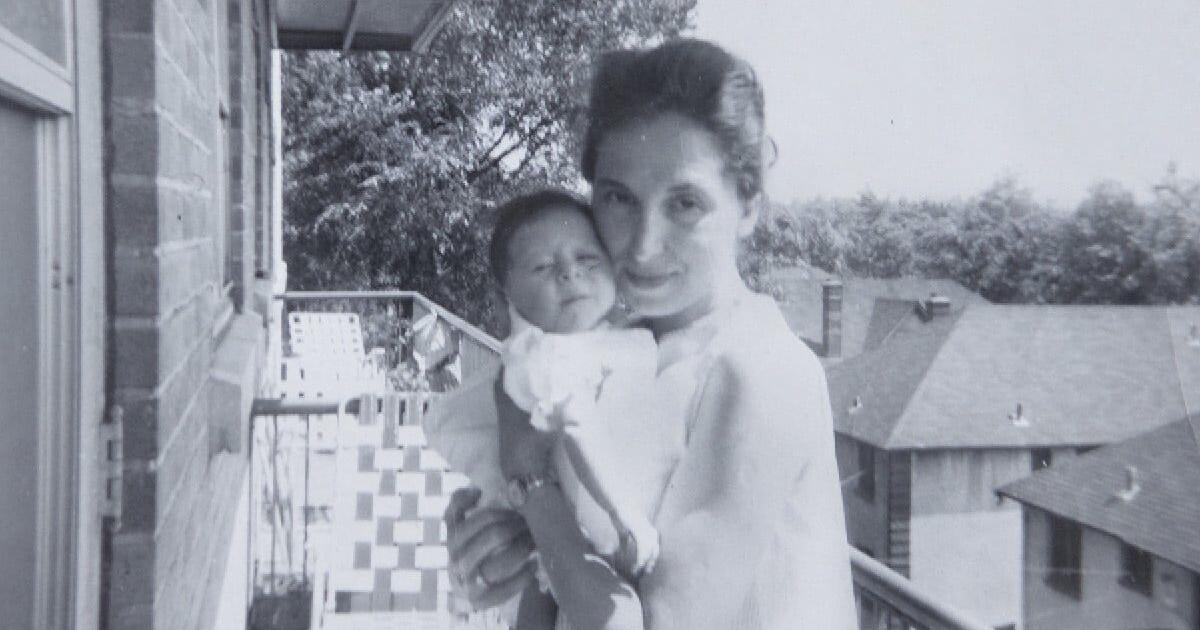A central tragedy — the deaths of both of her parents in a double suicide — opens and closes Audrey Hyams Romoff’s memoir.
The longtime Toronto publicist begins ”The Ripple Eclipse: Turning the Tide of Inherited Trauma” by taking us through the day up until this happened, and ends the book with the leaden and stunned immediate aftermath of it.
In between, she explores the real inciting incident, which took place many decades earlier. Her mother and grandmother were Holocaust survivors, and the ways they coped with that experience trickled down through the generations of her family. Hyams Romoff beautifully sews together her family’s story with hard-won insights about how to exist with and move on from such formative trauma.
Most of Toronto’s fashion and entertainment media know Hyams Romoff through her publicity work with stars such as Jennifer Lopez, Katy Perry and Amanda Brugel (who calls the book “brave, pure, and unflinching”) and high-profile brands including Longines, Estée Lauder and Victoria’s Secret. She is someone who radiates warmth and extreme competence in even the highest-wire professional settings — even while dealing with personal anguish — and she brings that to the memoir too, including behind-the-scenes stories of barely avoided disasters and celebrity hijinx.
It took Hyams Romoff a long time to get this book to market. “I’m not a celebrity. Nor am I 32 with a massive Instagram following,” she said. But trauma is something we all understand.
Opening wounds back up in order to write about them wasn’t easy. “My life was bisected into the before and after of my parents’ death,” Hyams Romoff said. During the acute stage of grief, she said, “I was a human zombie a lot of time, drinking and not sleeping; just sleepwalking through life. I had a husband and kids, and I had to come back to life. I had a business, and the only way to continue was putting one step in front of the other.”
She shares her many realizations about how her mother’s experience shaped her own identity, and how trauma is inherited in families, figuratively and quite literally. Researchers have studied Holocaust survivors with post-traumatic stress disorder and their children, and found that epigenetic changes, alterations to stress-related genes and increased cortisol are passed down through generations.
There are universal themes here, but Hyams Romoff’s family story is unique. “My mother was one of the youngest survivors of Auschwitz,” she said, a terrible and wonderful distinction. Her mother was driven by fear her whole life, and developed a desire for control in response. It wasn’t easy for her eldest daughter to live with.
“It was such a complicated relationship. I spent years running away from it. Avoiding it,” she said. “Sharing my mother’s story, and how it affected me, gives people permission to talk about their own struggles.”
In retelling her mother’s final days, Hyams Romoff reassesses and reflects on the signs of what was about to come; the ways her manic and volcanic behaviour had shifted. She just didn’t want to be here anymore.
Both Hyams Romoff’s grandmother and mother recorded their testimony for Steven Spielberg’s Shoah Foundation. And her mother’s story was part of a 1998 book called “Kinderlager,” about childhood Holocaust survivors. The version in the book was somewhat sanitized, she said. “My mother became very depressed after it came out.”
While researching her own book, Hyams Romoff obtained the original transcript of her mother’s interview, and was able to listen to her story in her own words. “I found out that she knew she was out of control and was trying, unsuccessfully, to harness her emotions.” The triggers kept coming back, and her mother would begin the same battle over and over again.
Hyams Romoff concentrates on the matrilineal line in her memoir. What made her determined to break the cycle of trauma following her parents’ death was seeing how it affected her daughter, Lindsay, who hid her own private struggles. (Her husband and son, who was just 14 at the time, are not as much of a focus in the book.)
As part of their efforts to process, Audrey and Lindsay travelled to Auschwitz together, with a PBS filmmaker. “I had thought for so long that I had such a normal childhood. Because that was all I knew,” Audrey said. But at the scene, she realized how compartmentalized her whole life had been. “My mother, my grandmother, never talked about the Holocaust. And yet, it was at the heart of every behaviour, every action. Part of them never left here.”
She recounts the one time she and her mother went to therapy together. It was a disaster for her mother, and a revelation for her. “Parentification [when a child is compelled into an adult role] is a painful concept. My mother couldn’t take it in.” But it gave Audrey perspective on her own life, and the fiercely independent, rebellious and driven path she had forged in Toronto, far from the shadow of her mother in Montreal.
Still, there are no neat resolutions. “How can you possibly make sense of everything that happened in my mother’s life? In my life? You can’t tie all that up in a pretty bow and make it all go away.” But you can get better, and stronger, she said.
People ask her if writing the book was cathartic. “It was not,” she said, firmly. “I am not sure I will ever be OK. But you know what? That’s OK.”



